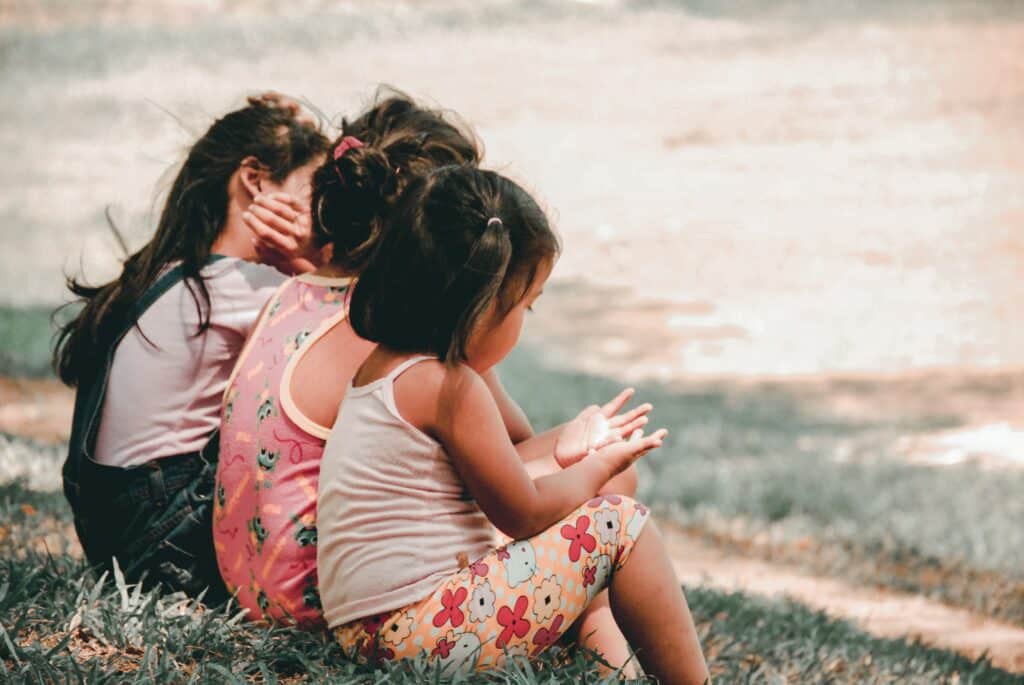
Finding friends when your kid has none? Yikes, that sounds harsh! But it’s an honest situation that many parents find themselves in.
For many people (especially the primary parent), the early years of parenting fill up social calendars to the point where you feel like every second of the day is devoted to some kid-centric activity: Baby-and-Me Yoga, parent-child music class, toddler time at the library, play dates at the park, preschool class parties, etc. The early childhood years are often filled with ‘default’ friends for young infants, toddlers, and even early school-aged children. The classmates and daycare buddies often become fast friends, and by default, parents see a lot of each other. For the lucky few, these blooming friendships continue to blossom as the children get older, and for the most fortunate, the parental friendships continue to grow, too. But this is not the case for everyone.
Some kids end up joining sports teams, scouts, youth groups, music groups, and clubs, and the parents—who are often carting the kids back and forth—running PTO events, volunteering in the school, or chaperoning trips and events end up spending a lot of time together too. This later stage of adolescence might also allow parents to find like-minded friends or at least bond over their children’s mutual interests. But what if your child doesn’t have social outlets? I’ve heard it often from parents whose children have little opportunity or ability to create strong social bonds…”They are lonely. I am lonely!”
These social situations can be painful to watch, especially if you long for the same depth of connection.
-Parents sitting together on the sidelines of the sports fields, sharing drinks, snacks, and inside jokes, all while cheering on their children.
-Moms are meeting for a happy hour to plan the next school dance, cheer competition, or scout trip.
-Or the parents who met when their kids were toddlers and now vacation together each summer or spend weekends at each other’s houses cooking out while the kids play peacefully in the backyard.
When we react emotionally to the experiences we see others having, it is important to pause and ask ourselves the following questions: What am I feeling? Why am I feeling this? Am I viewing this through a fact-focused lens? Are there changes I can make to get what I want/need?
The issue of the lonely child/lonely parent phenomenon is two-fold. The child is not an extension of the parent, and the parent is not an extension of the child. There are two issues here that we want resolved but each must be treated as separate because they deal with two entirely different beings. Many parents fall into the trap of thinking that if they solve their child’s loneliness problem, then by default, they will solve their own. But more often than not, the core problem is different for the child and the parent and needs to be approached in a customized manner.
Furthermore, as the child ages, the need for independence grows, leaving the parent behind in favor of peers. There may very well be similar struggles, such as social anxiety, shyness, a more introverted personality, etc., that play a role in the social struggles for both parent and child. Still, even with these similarities, there are nuanced factors at play that can’t be solved with a one-size-fits-all approach.
There are also particular struggles faced by parents who have children with specific special needs, behavior struggles, or other life challenges that often make developing peer relationships a bit more of a struggle. Parents can end up feeling isolated, grieving for themselves and their child as they watch their child’s peers bask in the glow of budding friendships that their child can’t seem to emulate for any range of reasons. These parents might often feel shunned, judged, or excluded themselves.
Here’s the truth of it. Life is lonely. Life is lonely for all of us, at least some of the time. The fast-paced competitive/productivity/popularity-driven society we live in does not make it easy to develop truly authentic friendships that last a lifetime. Social circles take time and effort to build, shape, grow, and maintain. Many social circles will only be present for certain phases of our lives, which is by design. Some stages of life are lonelier than others, and some people’s existences are sadly lonelier than others. That may sound bleak. But here’s another truth: it is a solvable problem. Loneliness is treatable.
The first step is to separate the parent from the child. Whose loneliness are you trying to solve? They, without a doubt, must be handled separately. It is not the child’s job to provide social outlets for the parent, and it is not the parent’s job (although they can be a crucial component in facilitating) to provide social outlets for the child. Begin by asking questions. What are the barriers preventing socialization? What interventions, strategies, and services can help work through these barriers? What are the individual’s interests? Where can these interests be cultivated?
The second step is to create a plan of action. What is your goal? What are the steps that will get you there?
The third step (often the hardest) is stopping the comparison. We are seeing the lives of others through snapshots and an outside perspective. Nothing is gained from wishing you had what someone else has. Everything is gained from identifying your wants and needs and then creating a plan to get there.
One final step in solving loneliness is to be an “includer” yourself. Reach out to the parent who is always at school pick-ups alone. Invite a neighbor for coffee or a walk. Encourage your kids to look for peers who might need a little help making a friend. We get what we give, and when we give love, kindness, and authenticity, a little bit of the same will return to us eventually.
As a side note, I run Moms for Mental Health. And part of what our group strives to do is build connections for those struggling with social anxiety. Our monthly coffee meetups are open to all and are a judgment-free, pressure-free, casual meetup opportunity where we all can be ourselves.
If you are struggling with loneliness, social anxiety, depression, or interpersonal relationships and feel like you could use added help in addressing these issues, please get in touch with a licensed mental health professional who can help guide you on your journey; no one deserves to be lonely.
Disclaimer: The views and opinions expressed on Annapolis Moms Media and its affiliates are those of the authors and/or experts and do not necessarily reflect the official policy or position of Annapolis Moms Media. Any content provided by our bloggers or authors are of their opinion, and are not intended to malign any religion, ethnic group, club, organization, company, individual or anyone or anything.
The published article is available for informational purposes only and is not considered licensed professional advice on any subject matter. By viewing articles/blog posts, the reader understands there is no client relationship between the reader and the publisher and its authors. The article/blog should not be used as a substitute for professional advice from a licensed professional, and readers are urged to consult their own counsel on any specific questions concerning a specific situation.





 It’s Fall Festival Season
It’s Fall Festival Season